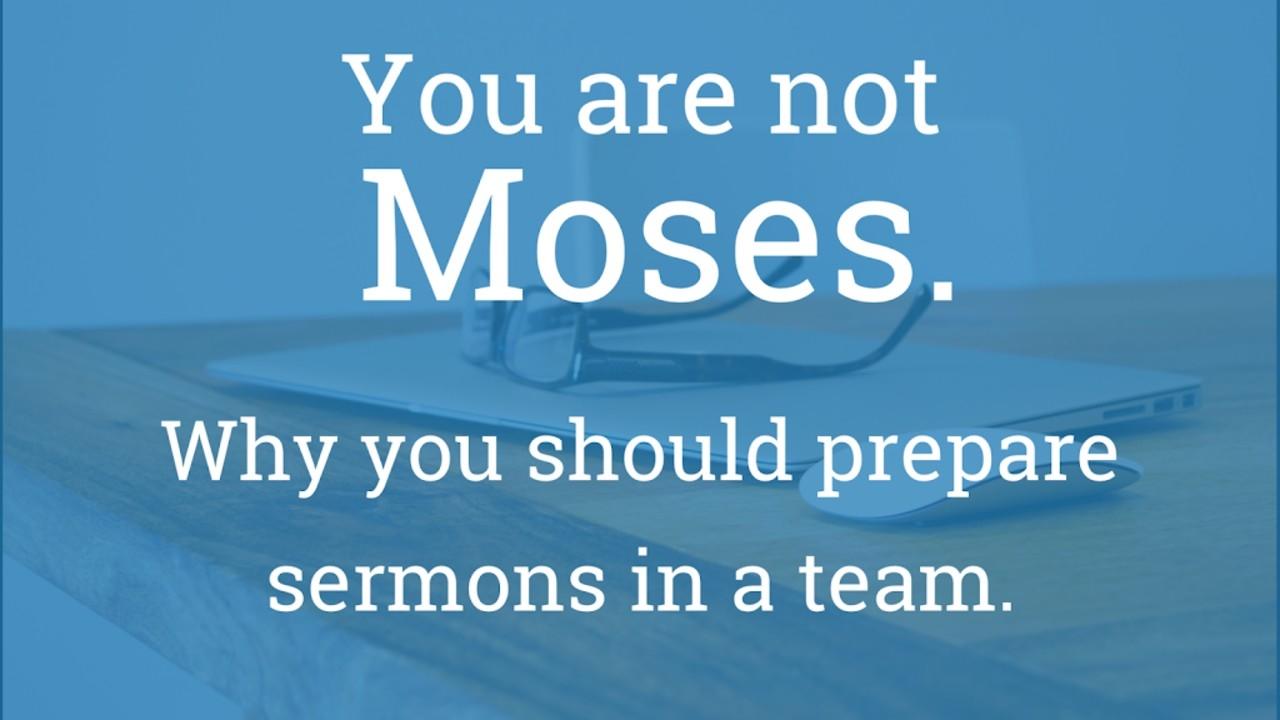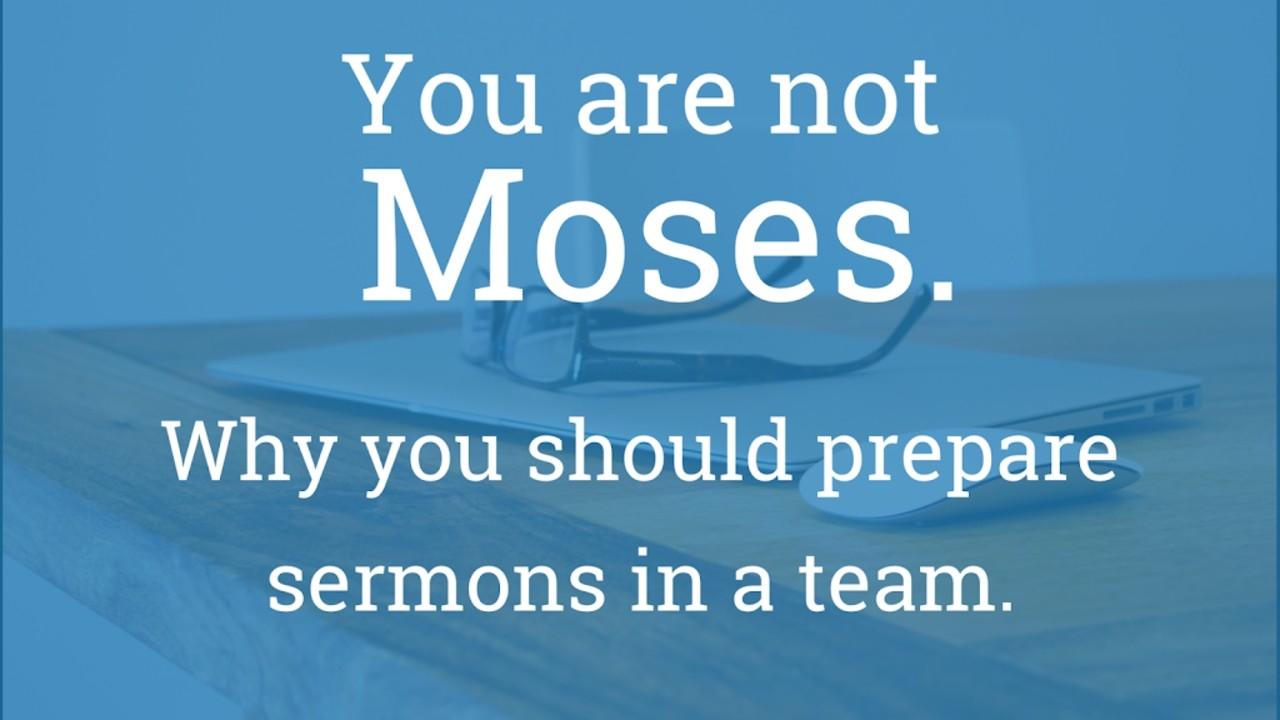Preachers do weird things. One weird thing we do is prepare our sermons alone. Consider the absurdity in that. Every week you have to get up in front of a group of people and say words. Those words have to be engaging, powerful, motivating, encouraging, accurate, practical and spiritual all at the same time. Every. Single. Week.
And you prepare alone. All by yourself.
I think this started with Moses. He went up on a mountain and heard from God. He came down and told the people, “This is what God said.”
We’ve never really changed the model. Preachers have been preparing sermons alone ever since.
I used to prepare my sermons alone. I would read commentaries, watch sermons and research articles, but it was mostly just me by myself.
If you’re like most preachers, you prepare alone. The problem is you are not Moses. You are not an Old Testament prophet. There is nothing requiring you to use this method.
I’m not saying God can’t speak to you in your study. You should hear from God as
...











